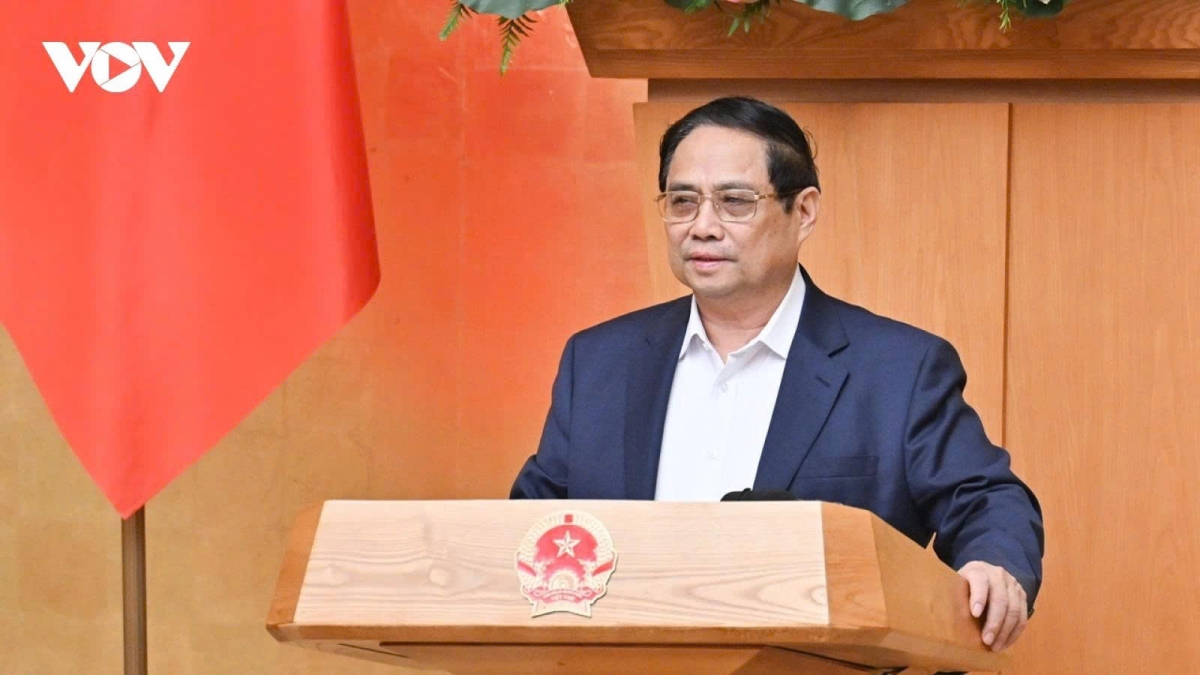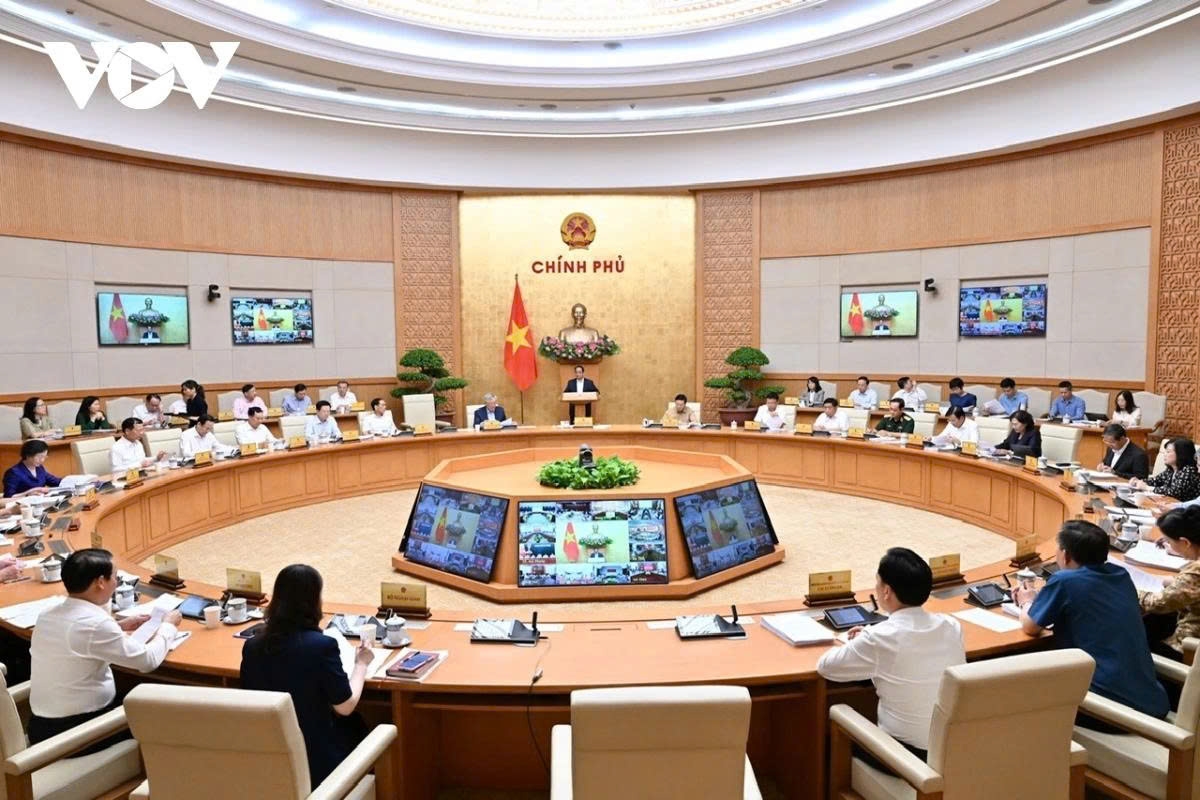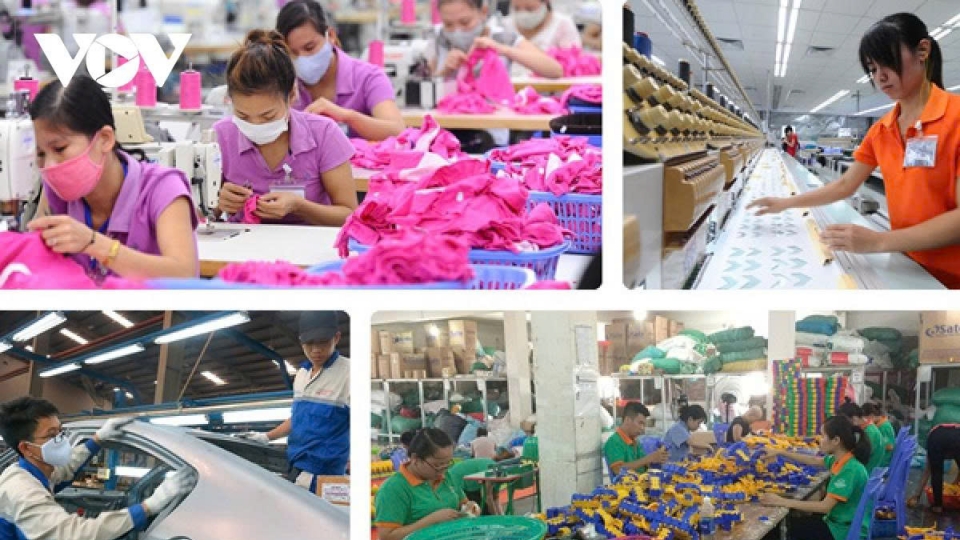PM urges comprehensive measures to achieve 8% or higher GDP growth in 2025
VOV.VN - Prime Minister Pham Minh Chinh asked ministries, sectors, and localities to intensify all efforts toward the goal of achieving a GDP growth rate of at least 8% in 2025, a challenging goal amid continued global and domestic economic uncertainties.

Addressing a regular monthly Government meeting for June in Hanoi on July 3, Chinh noted that Vietnam’s socio-economic situation in the first half of 2025 showed strong improvement, with each month and quarter outperforming the previous one.
Overall, performance in the first six months surpassed that of the same period in 2024 across most sectors. Encouragingly, all three major economic sectors recorded robust growth. Economic hubs such as Ho Chi Minh City and Hanoi grew by 7.82% and 7.63% respectively, while several other localities including Quang Ngai, Hai Phong, Quang Ninh, Ninh Binh, Bac Ninh, and Phu Tho posted double-digit growth.
Public investment disbursement was higher than the same period last year. FDI inflows reached over US$21 billion, up 32%, marking the highest level in 15 years. Investment in socio-economic infrastructure, especially transportation, was a top priority, with six more sections of the North–South Expressway put into operation, extending Vietnam’s operational expressway network to 2,268 km.
However, the Prime Minister also acknowledged persistent challenges such as macroeconomic management pressures, exchange rate volatility, production and business difficulties, and complex issues like smuggling, counterfeit goods, and climate change. Importantly, GDP growth in the first six months, although close to the target, still fell short, requiring greater efforts to meet the annual target of 8% or more.

Outlining several key directions in July and the coming months, the Government leader requested ensuring the smooth and responsive operation of the two-tier local government system, so that no citizen or business faces delays or inaction in administrative procedures.
He underlined the need to prevent disruption or abandonment of ongoing projects due to a lack of accountability, expedite transitional projects efficiently to avoid wasted resources, and stay proactive and flexible in responding to reciprocal tax policies from the United States.
Top priority will be given to maintaining macroeconomic stability, controlling inflation, and ensuring major economic balances, he stressed.
The PM reminded the designated agencies to stimulate growth by revitalising traditional growth drivers (exports, investment and consumption), while promoting new engines of growth (digital economy, green economy, circular economy, sharing economy, semiconductor industry, artificial intelligence, Internet of Things, quantum technology, biotech)
The Prime Minister also tasked the Ministry of Finance and Government Inspectorate to coordinate and resolve 2,365 long-standing, stagnant projects, in line with Resolution 68 of the Politburo, to unlock resources and prevent waste.
Further priorities include continued efforts in institutional reform, decentralisation, administrative simplification, and digital transformation; rigorous implementation of the Government’s action programme for the Politburo’s “four-pillar” strategy; and emphasis on cultural, social, environmental protection, and climate resilience.
He instructed thorough preparations for the 80th anniversary of the August Revolution and National Day (September 2) and assigned the Ministry of Culture, Sports and Tourism, in coordination with national media agencies, to intensify policy communication, highlight success stories and model practices, and promote social consensus and momentum for national development in the new era.




